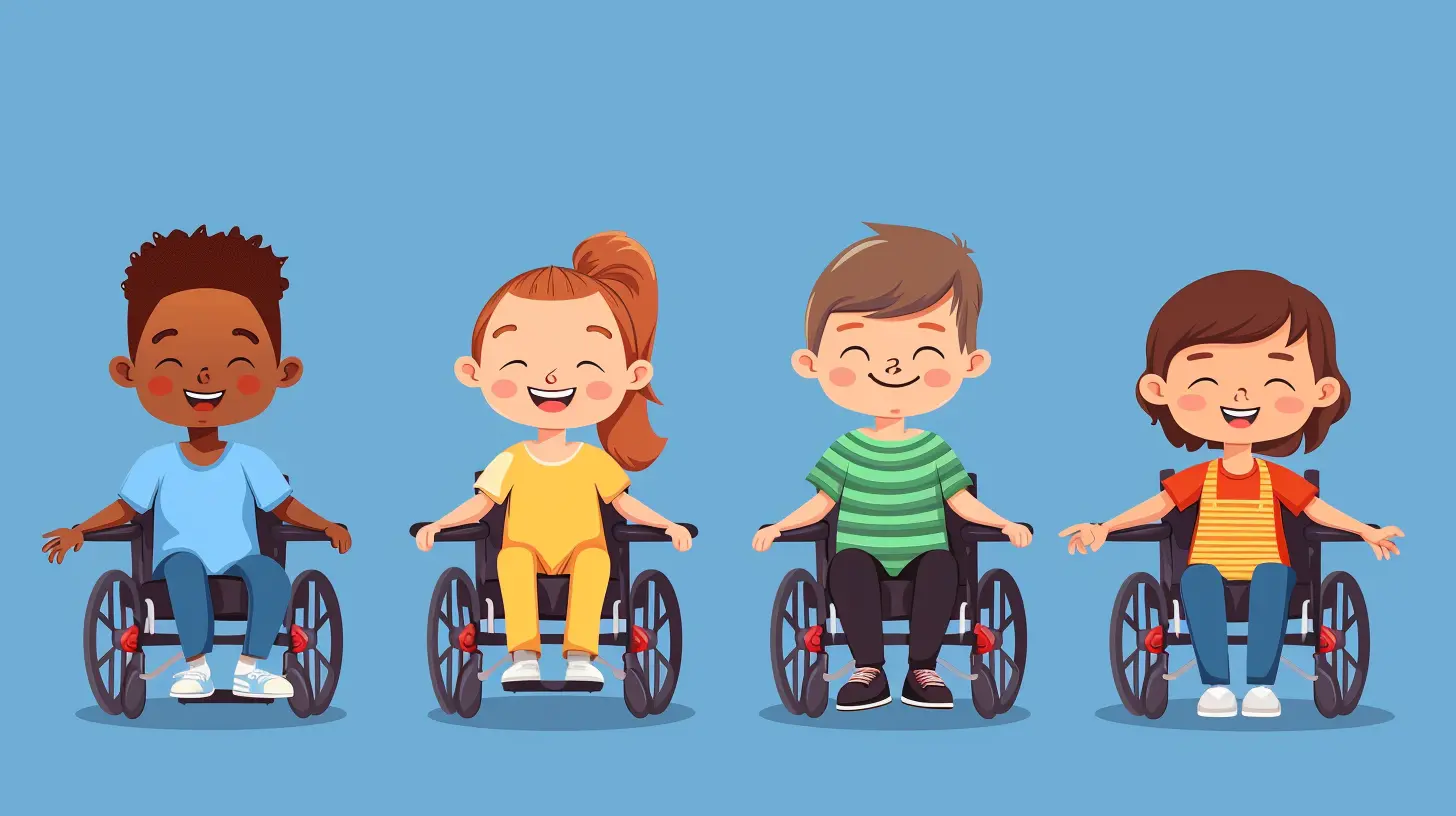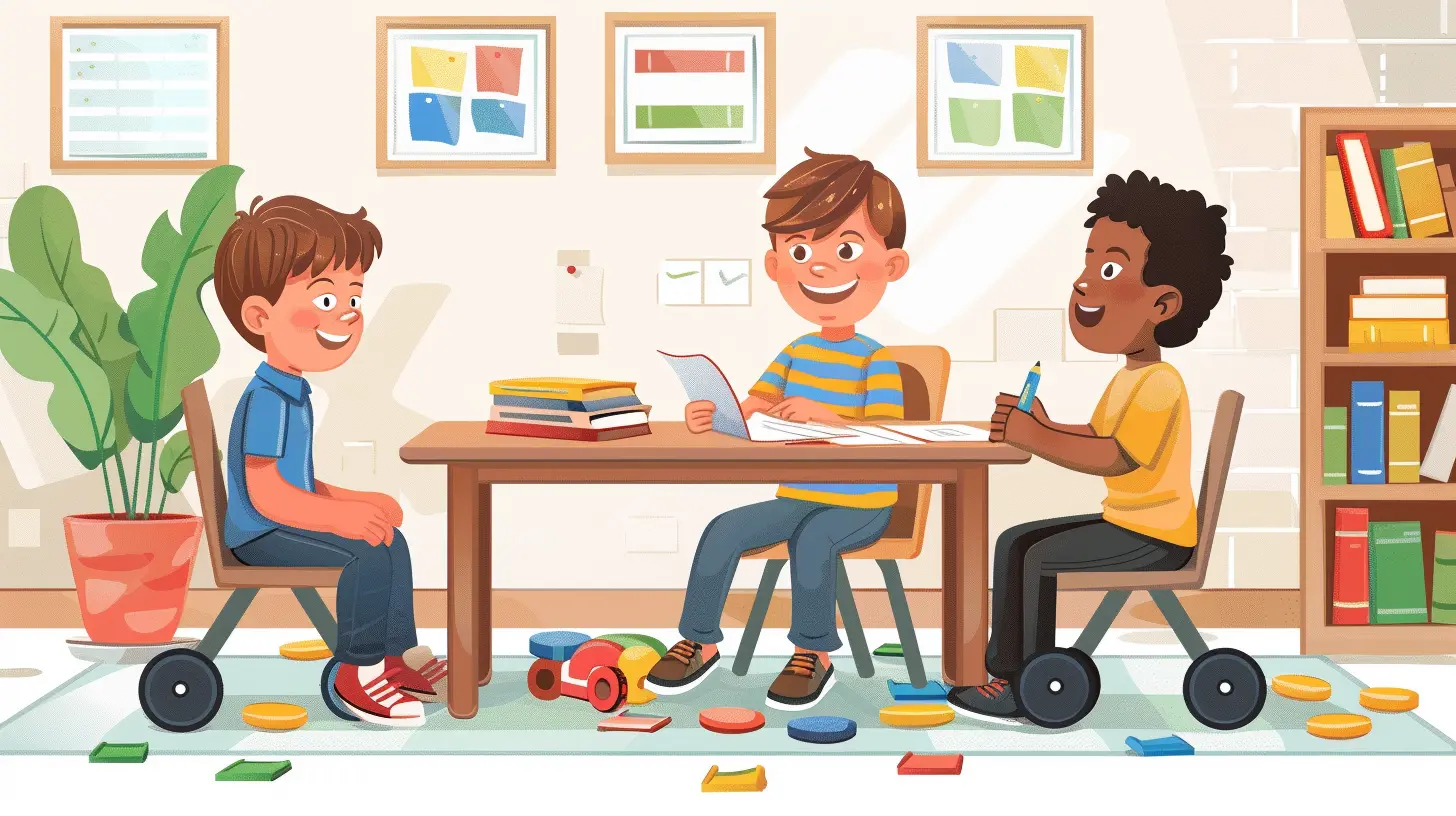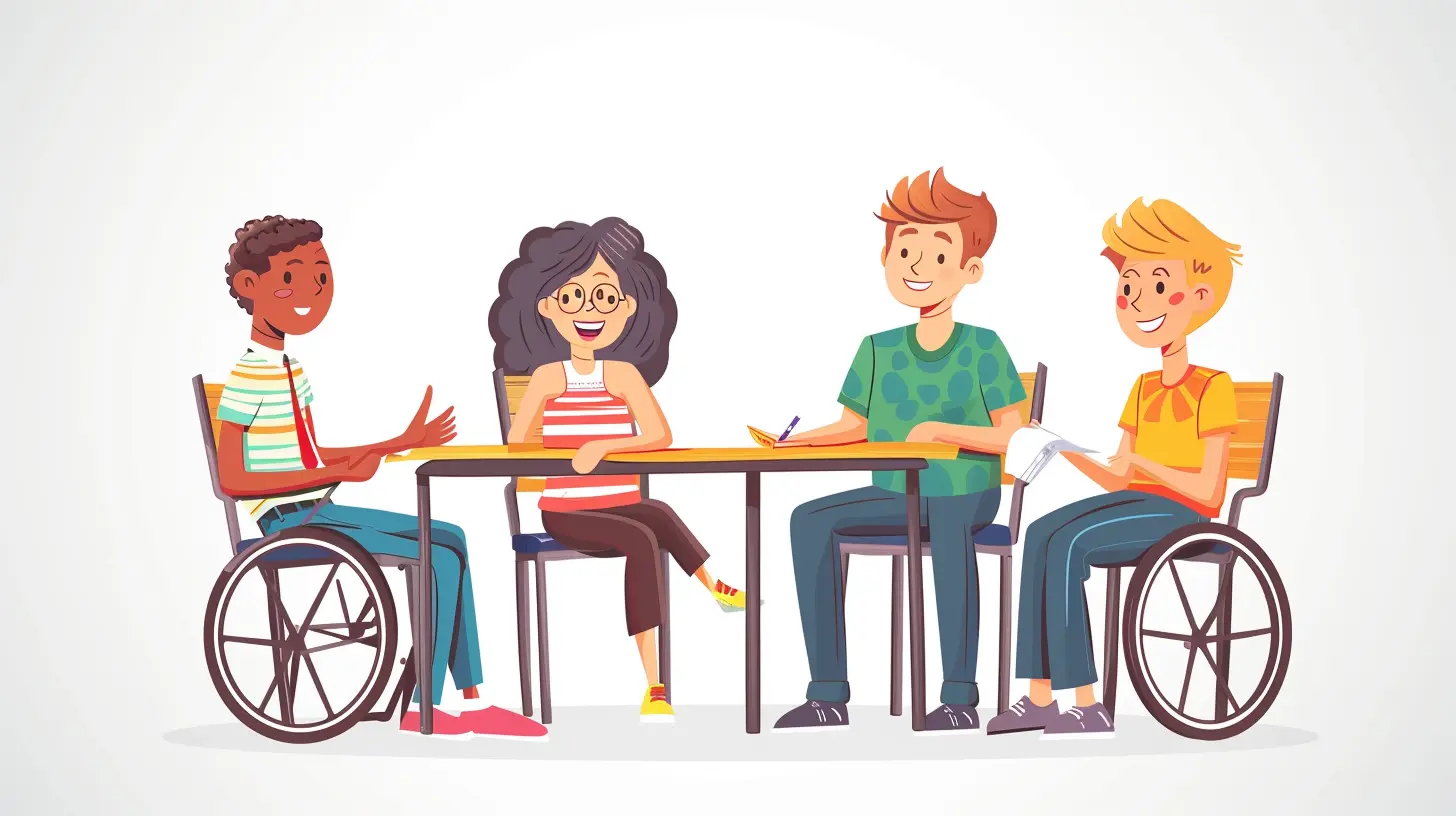Using Peer Mentors to Support Students with Special Needs
31 May 2025
Introduction
Imagine starting a new job in a foreign country where you don't know the language, customs, or how things work. Overwhelming, right? Now, put yourself in the shoes of a student with special needs navigating school life. It can be just as daunting. But what if they had a peer—someone to guide, support, and encourage them?
That's where peer mentoring comes in. It's a game-changer in education, offering students with special needs the support they need while fostering a culture of inclusion and empathy among their peers. In this article, we'll dive deep into how peer mentoring benefits students with special needs, how to implement it effectively, and why it's a win-win for everyone involved. 
What Is Peer Mentoring?
At its core, peer mentoring is a system where students—typically older or more experienced—support their peers in academic, social, or emotional aspects. Think of it as having a school-based buddy who helps you navigate tough times, whether it's understanding a tricky math concept or dealing with the anxiety of lunchtime socialization.When it comes to students with special needs, peer mentors act as a bridge between them and the general classroom environment, making sure they're included, understood, and encouraged. 
Why Peer Mentoring Works for Students with Special Needs
So, why does peer mentoring work so well for students with special needs? The answer lies in the magic of friendship, relatability, and consistent support. Let's break it down.1. Promotes Inclusion and Social Skills
Many students with special needs struggle with social interactions. Having a peer mentor by their side means they have a friendly face guiding them through conversations, group activities, and daily interactions. Over time, this builds confidence and enhances their ability to form social connections.2. Encourages Independence
One of the biggest goals in special education is helping students become more independent. Peer mentors don’t just give answers or do tasks for their mentees—they empower them. They gently guide, offer suggestions, and encourage problem-solving, which boosts self-reliance.3. Reduces Anxiety and Stress
School can be overwhelming, especially for students who process information differently or deal with sensory challenges. Having a peer mentor can be a calming presence, making school feel like a safe and welcoming place rather than an anxiety-triggering environment.4. Enhances Academic Success
Learning from a teacher is helpful, but sometimes, students relate better to their peers. A peer mentor can use language and examples that make sense, reinforcing classroom learning in a way that’s easy to grasp. It’s like having a study buddy who also cares about your success.5. Builds a Sense of Belonging
No one likes to feel like the odd one out. Peer mentoring ensures that students with special needs feel like they are part of the school community. It helps them make friends, join activities, and be seen for who they truly are rather than just their challenges.
How to Implement a Peer Mentoring Program
Starting a peer mentoring program might seem like a big task, but with the right approach, it can be seamless and incredibly rewarding. Here’s how schools can make it work.1. Carefully Select and Train Mentors
Not everyone is cut out to be a peer mentor, and that’s okay. Schools should choose students who show empathy, patience, and a willingness to help others. Once selected, mentors should receive training on:- Understanding special needs
- Communication strategies
- Conflict resolution
- Encouraging independence rather than dependency
2. Match Mentors and Mentees Thoughtfully
The best matches are made based on personality, interests, and needs rather than just availability. A mentor and mentee who share common interests will naturally bond better, making the mentoring relationship more effective.3. Set Clear Goals and Expectations
What do you want to achieve with peer mentoring? Whether it’s improving social skills, boosting confidence, or enhancing academic performance, having clear goals helps keep the program structured and purposeful.4. Provide Ongoing Support
Just like students with special needs, peer mentors also need guidance. Regular check-ins with teachers or counselors ensure that mentors feel supported and can share any challenges they face.5. Celebrate Success Stories
Recognizing the efforts of both mentors and mentees encourages commitment and engagement. Schools can highlight success stories in newsletters, assemblies, or even small reward systems to show appreciation.
The Impact on Peer Mentors
Believe it or not, peer mentors benefit just as much as the students they're helping.1. Develops Leadership Skills
Being responsible for someone else's well-being fosters leadership and responsibility—two traits that will serve mentors well in the future.2. Enhances Empathy and Understanding
Interacting closely with students with special needs teaches mentors patience, compassion, and a deeper understanding of different abilities.3. Boosts Confidence and Communication
Mentors develop stronger communication skills, which help them not only in school but in life. Explaining, encouraging, and problem-solving all contribute to personal growth.4. Creates Lifelong Friendships
Many times, peer mentoring relationships turn into real friendships that last beyond school years. These connections break stereotypes and foster a lifelong appreciation for diversity.Addressing Potential Challenges
Of course, no program is without its hurdles. Here are some common challenges and how to overcome them:1. Lack of Mentor Commitment
Not every student will take their mentoring role seriously. Regular check-ins and incentives can help maintain motivation.2. Mismatched Pairings
Sometimes, a mentor and mentee just don’t click. It’s important to reassess and, if needed, make adjustments early on.3. Overdependence on the Mentor
The goal is to encourage independence, not reliance. Training mentors to guide rather than do helps prevent this issue.4. Time Constraints
Busy school schedules can make it hard to fit in mentoring sessions. Schools should plan structured times, such as lunch breaks or designated periods, to ensure regular meetings.Final Thoughts
At the end of the day, peer mentoring isn’t just about supporting students with special needs—it’s about creating a school culture that values inclusion, friendship, and mutual growth. When done right, it’s a win for everyone involved. Students with special needs gain confidence, mentors grow into compassionate leaders, and schools become more accepting and inclusive places.So, if you’re an educator, parent, or student wondering how to make a difference, consider pushing for a peer mentoring program. A simple act of support can change a life.
all images in this post were generated using AI tools
Category:
Special EducationAuthor:

Monica O`Neal
Discussion
rate this article
3 comments
Cadence McGuffin
Peer mentors can significantly enhance the learning experience for students with special needs by providing tailored support, fostering inclusivity, and promoting social interactions, ultimately boosting confidence and academic success.
June 9, 2025 at 3:13 AM

Monica O`Neal
Thank you for your insightful comment! I completely agree that peer mentors play a crucial role in enriching the educational journey for students with special needs.
Jude McKellar
Peer mentors are like superhero sidekicks for students with special needs! Not only do they lend a helping hand, but they also sprinkle a little magic in the learning journey. Together, they create a dynamic duo ready to conquer challenges and celebrate every tiny victory!
June 1, 2025 at 3:18 AM

Monica O`Neal
Thank you for your creative analogy! Peer mentors truly bring unique support and joy to the learning experience for students with special needs.
Sablethorn Campbell
In the shadows of traditional support systems lies a transformative approach: peer mentoring. As students navigate their unique challenges, the bonds formed may reveal unexpected strengths and insights. What hidden potential could emerge when peers become allies in the journey of learning?
May 31, 2025 at 2:32 AM

Monica O`Neal
Thank you for highlighting the power of peer mentoring! By fostering strong connections, we can unlock unique strengths and resilience in students with special needs, ultimately enriching their learning experience.



